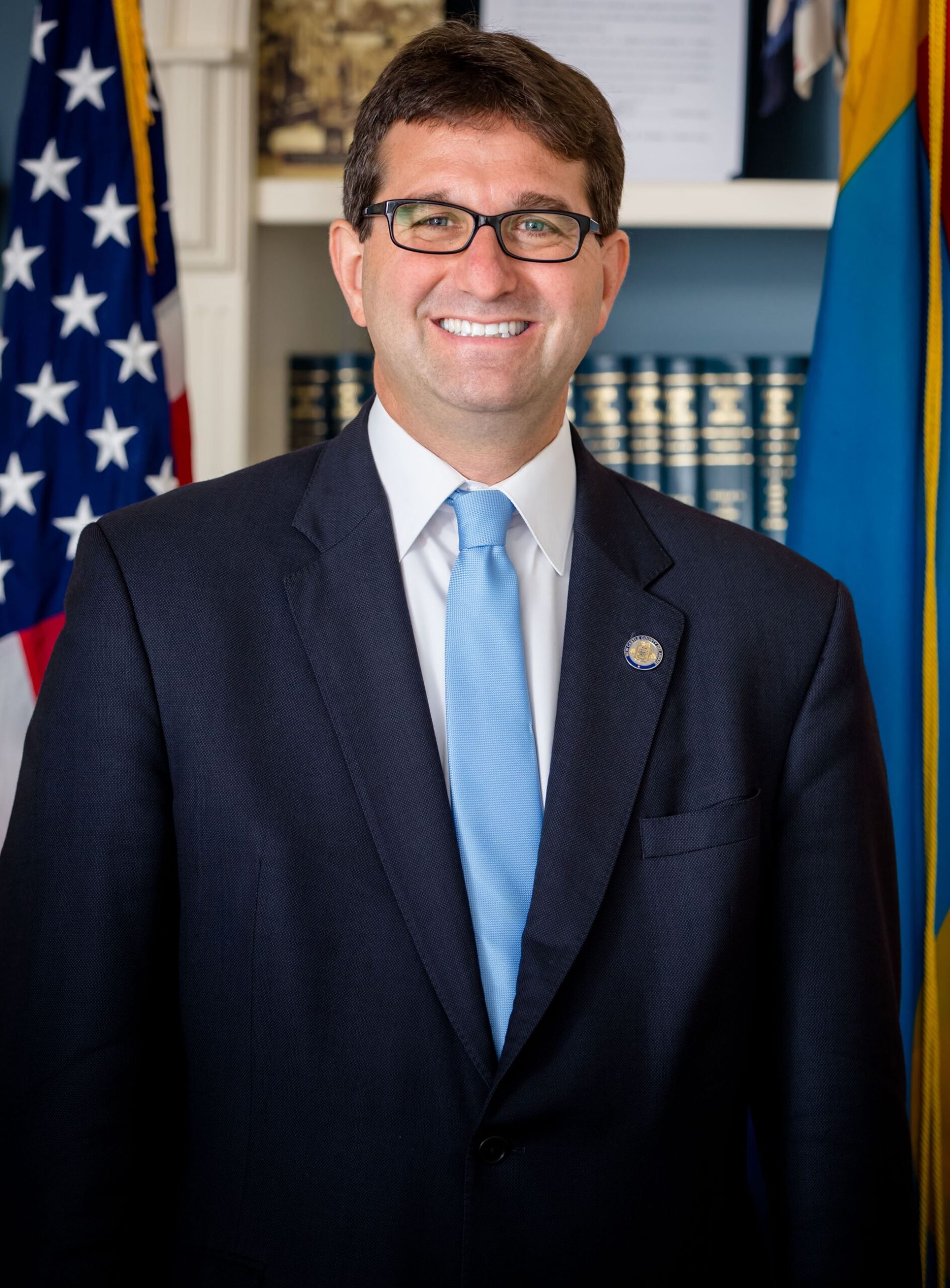By REUBEN MUSONIK, POLITICAL EDITOR
DOVER, DELAWARE — In a historic victory earlier this week, Matte Meyer was officially elected as the Governor of UIS State, securing a mandate to lead the state for the next four years. With his charismatic leadership and progressive agenda, the newly-elected governor has captured the attention of both local and national political circles. However, one facet of his life that has emerged as particularly intriguing is his deep and personal connection to Nairobi, Kenya — a bond that has influenced his worldview and political approach in ways few could have predicted. As reported in The Daily Nation today, Meyer’s Kenyan connection is not merely a footnote in his biography, but a defining feature of his identity and governance philosophy.
Early Life and Political Beginnings
Born in 1982 in Wilmington, Delaware, Matte Meyer was raised in a family steeped in community activism. His father, a local high school teacher and environmental advocate, and his mother, a healthcare worker and volunteer, instilled in him a deep sense of social responsibility from a young age. Growing up, Meyer was active in various youth-led movements, often organizing charity events, working on voter registration drives, and participating in environmental campaigns. These formative experiences set the stage for his eventual career in public service.
After completing his undergraduate studies in political science at the University of Delaware, Meyer continued his education at Georgetown University, where he earned a master’s degree in public policy. It was during these years that his political ideology began to crystallize. Meyer was drawn to progressive causes and social justice, aligning himself with policies aimed at reducing inequality and expanding access to education and healthcare.
In 2014, after spending a few years working as a legislative aide, Meyer made his first foray into electoral politics. He successfully ran for a seat in the Delaware State House, where he quickly became known for his thoughtful policy proposals and willingness to collaborate across party lines. His rise through the ranks was swift, and by 2020, he was elected Lieutenant Governor of Delaware. His tenure was marked by a series of successful initiatives, including reforms to the state’s healthcare system and initiatives to promote renewable energy.
However, it was Meyer’s overseas experiences — particularly in Kenya — that would come to define his leadership style and influence his gubernatorial run.
-
Sale!

CURING HYPERTENSION: Simple Healing Secrets Revealed
$14.00Original price was: $14.00.$5.00Current price is: $5.00. Add to basket -
Sale!

Diabetes Reversal: Stop Medication and Live Worry-Free For Life
$14.00Original price was: $14.00.$3.60Current price is: $3.60. Add to basket -
Sale!

The Rise of the Silent
$5.00Original price was: $5.00.$2.00Current price is: $2.00. Add to basket -
Sale!

Win Back Your Financial Freedom: A Guide to Build Your Wealth
$5.00Original price was: $5.00.$2.00Current price is: $2.00. Add to basket
The Kenyan Connection
Meyer’s journey to Kenya began in 2011, when he took a sabbatical to volunteer with a nonprofit organization focused on community development in East Africa. The organization, based in Nairobi, worked with local communities to improve access to clean water, build schools, and provide healthcare in rural areas.
During his time there, Meyer was immersed in the daily challenges facing many Kenyan families, particularly in the slums surrounding Nairobi. The experience profoundly impacted him, and he spent several months working with local activists, government officials, and rural communities to help design sustainable development projects.
“I was struck by the resilience and resourcefulness of the Kenyan people. The challenges they face, especially in terms of poverty and lack of basic services, were not dissimilar to the struggles we face here in the U.S.,” Meyer recalled in a recent interview. “But what impressed me the most was how people in Kenya have found ways to adapt and solve problems on their own, often in the face of limited resources.”
Meyer’s time in Kenya became a turning point. He realized that his understanding of politics and governance needed to be broadened beyond the American context. The innovative solutions he saw in Nairobi — like grassroots efforts to address healthcare access or entrepreneurial ventures to tackle waste management — shaped his thinking on policy. Meyer became an advocate for looking beyond conventional methods in solving entrenched social issues, and for fostering greater partnerships between governments and local communities.
Following his return to the U.S., Meyer continued to work closely with the nonprofit sector, spearheading initiatives that connected American and Kenyan organizations to collaborate on global development issues. He was instrumental in organizing the first “East Africa and North America Leaders’ Forum,” which brought together policymakers, entrepreneurs, and civil society leaders from both regions to discuss sustainable development and innovation.
Kenyan Influence on Meyer’s Political Philosophy
Meyer’s time in Kenya also helped him develop a nuanced perspective on governance. While Delaware, and by extension UIS State, is a far cry from Nairobi in terms of economic development and infrastructure, Meyer’s experiences in Kenya instilled in him a belief in the power of local leadership. He became a passionate advocate for decentralizing power and empowering local communities to take charge of their own development.
One of Meyer’s signature proposals as governor-elect is his plan to overhaul UIS State’s approach to public service delivery. Drawing on lessons learned from Kenya, Meyer plans to implement a “bottom-up” governance model that encourages greater local participation in decision-making processes. His administration promises to invest in community-driven projects and make state resources more accessible to underserved communities.
“Just like in Nairobi, we need to trust our communities and local leaders to come up with solutions that are tailored to their unique needs,” Meyer said. “A one-size-fits-all approach will never work. In Kenya, I saw how community-based solutions can be more effective than top-down mandates. That’s the kind of leadership I want to bring to UIS State.”
Cultural Exchange and Diplomacy
Beyond policy, Meyer has used his platform to build stronger diplomatic ties between Kenya and the U.S. During his time as Lieutenant Governor, he played a key role in hosting Kenyan officials and dignitaries in Delaware, fostering greater cultural exchange and collaboration on trade and business opportunities. This included efforts to create partnerships between Delaware businesses and Kenyan startups, particularly in the fields of technology and agriculture.
Meyer has often spoken about the lessons of entrepreneurship and innovation that he took from Kenya, especially in Nairobi’s burgeoning tech scene, often referred to as “Silicon Savannah.” With Kenya’s rapidly growing tech ecosystem and innovations like mobile money, which revolutionized financial services in sub-Saharan Africa, Meyer believes there are valuable lessons to be learned in the U.S. about leapfrogging traditional infrastructure to develop cutting-edge solutions. In Nairobi, he also learned Kiswahili and created Ecosandals, a recycled footwear company that sold environmentally friendly footwear to customers in 17 countries on five continents. Matt subsequently spent 12 months in Mosul, Iraq, as a diplomat embedded with the United States Army during Operation Iraqi Freedom and Operation New Dawn.
“My time in Nairobi taught me that innovation doesn’t always have to come from the biggest cities or wealthiest nations,” Meyer said. “Sometimes, the most transformative ideas emerge from places with fewer resources, and that’s something I want to bring back to Delaware. We have so much to learn from Kenya’s ability to innovate in challenging circumstances.”
The Path to the Governor’s Office
As the campaign for governor heated up, Meyer’s Kenyan connection became a focal point of both admiration and scrutiny. Supporters applauded his international perspective and praised his ability to think globally, while critics questioned whether his experiences abroad could translate into effective local governance. Some doubted whether his focus on international collaboration might detract from his ability to address pressing issues within UIS State, such as education, healthcare, and infrastructure.
However, Meyer was undeterred. He framed his Kenyan experience not as an escape from domestic challenges but as an expansion of his capacity to think creatively about governance. He argued that the future of political leadership requires leaders who can approach problems with a global lens while remaining deeply connected to the needs of their local communities.
“Kenya taught me the importance of resilience and adaptation in the face of adversity. These are qualities we need in Delaware too,” Meyer said in his victory speech. “The solutions we need in Delaware don’t have to look like the ones we’ve always had. We can look beyond our borders for inspiration, and we can take the best ideas from everywhere to make our state stronger.”
Looking Forward
As Governor-elect, Meyer’s focus now shifts to putting his ideas into practice. His agenda includes tackling climate change, advancing healthcare reform, and improving educational outcomes — all issues where his Kenyan experience has informed his policy framework. In his eyes, the success of his administration will hinge not just on economic growth, but on creating an inclusive, resilient state that draws inspiration from both local innovation and global collaboration.
“I’m proud of my roots here in Delaware, but I’m also proud of the lessons I’ve learned from Nairobi,” Meyer said. “The people of this state want solutions, not political dogma. We’ve got to be bold, we’ve got to be inclusive, and we’ve got to be innovative. That’s how we’ll move forward, together.”
As he prepares to take office, Matte Meyer is already being watched as a rising star in American politics — a politician with a truly global perspective, ready to blend international insights with local leadership to tackle some of the most pressing challenges facing his state. Whether his Kenyan connection will prove to be the key to his success remains to be seen, but for now, it’s clear that Matte Meyer is anything but your typical American politician.
-
Sale!

CURING HYPERTENSION: Simple Healing Secrets Revealed
$14.00Original price was: $14.00.$5.00Current price is: $5.00. Add to basket -
Sale!

Diabetes Reversal: Stop Medication and Live Worry-Free For Life
$14.00Original price was: $14.00.$3.60Current price is: $3.60. Add to basket -
Sale!

The Rise of the Silent
$5.00Original price was: $5.00.$2.00Current price is: $2.00. Add to basket -
Sale!

Win Back Your Financial Freedom: A Guide to Build Your Wealth
$5.00Original price was: $5.00.$2.00Current price is: $2.00. Add to basket
About the Author:
Reuben Musonik is a political journalist with a focus on politics and global diplomacy. You can follow his work on Twitter at @TheDispatch2.




